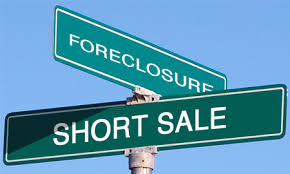 Our firm frequently has clients who own property that is in foreclosure. Often, these parties wish to sell their property and move on from the situation. Once a sales price is agreed upon, the important question to be asked is whether the proceeds from the sale are sufficient to pay off the debt on the property, or, if not, what the expected deficiency will be. As attorneys for the person selling a property in foreclosure, we would calculate the amount of all liens and judgments on the property, including the mortgage or mortgages in default, the costs and expenses of the sale, including New York State transfer tax and any local transfer tax, as well as the agreed upon broker’s commission for the sale.
Our firm frequently has clients who own property that is in foreclosure. Often, these parties wish to sell their property and move on from the situation. Once a sales price is agreed upon, the important question to be asked is whether the proceeds from the sale are sufficient to pay off the debt on the property, or, if not, what the expected deficiency will be. As attorneys for the person selling a property in foreclosure, we would calculate the amount of all liens and judgments on the property, including the mortgage or mortgages in default, the costs and expenses of the sale, including New York State transfer tax and any local transfer tax, as well as the agreed upon broker’s commission for the sale.
This figure is then compared to the negotiated sales price for the property, as per the Contract of Sale. In many situations, the proceeds may comfortably exceed the debts on the property and the expenses of sale. For example, the total debt and expenses of sale may total $400,000.00, and the sales price may be $500,000.00. In this case, the seller may move ahead with the closing and expect to walk away with some additional funds after all costs and expenses of the sale are paid, including the broker’s commission and transfer taxes associated with the transaction.
But what happens if there are insufficient funds from the sales price to cover the debts and expenses encumbering the property? Let’s say the debt and expenses of sale are $400,000,00, and the sales price is only $375,000.00. In that situation, the person selling the property has several options, which will be discussed in this blog post.













